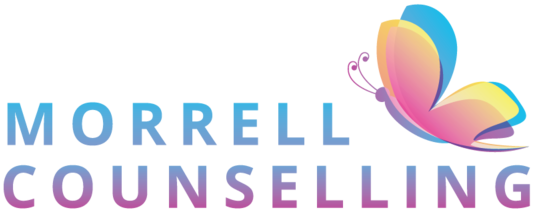Choosing a Counsellor
The initial stage of actually acknowledging that you need some support may feel overwhelming enough, but a short time googling will show you dozens of counsellors in your area. How do you go about choosing the right one for you?
You may have an opportunity where you can seek support through work or a local service and in which case be allocated to a counsellor. However, if you choose to seek private counselling you will likley be confronted with many different profiles of people in your local area. I have been through this process as a client and as a counsellor, so here are some of the things I think it is important to consider when choosing the right counsellor for you.
Qualifications/Status: I would encourage you to seek counselling from someone registered with a counselling governing body. I can only speak from a BACP (British Association for Counselling and Psychotherapy) perspective as this is who I am registered with – but in order to be a registered member you must have completed a certain number of clinical hours and either done a BACP recommended training course or a BACP exam to prove your abilities. This also ultimately gives you as a client a pathway should you feel the need to make a formal complaint about your counsellor. Some counsellors will also state that they are accredited, in the case of BACP accreditation this demonstrates that they have completed a minimum of 450 clinical hours and chosen to complete a dissertation like piece of work for this status. Whilst Accreditation doesn’t necessarily indicate that one counsellor is better than the other, as one counsellor may have been working for much longer and have more experience but just chosen not to apply for the accreditation – it’s just another way for the counsellor to demonstrate their competence.
Experience/specialism in your niche issue: Often clients will seek counselling from someone who specialises in their particular issue. Arguably working with 5 clients with the “same issue” will never be the same piece of work, and therefore it is not necessary to work with someone with specialist experience in that area. For example, a client struggling with bereavement does not necessarily need to seek bereavement counselling as loss is a common subject matter that all counsellors should be able to work with successfully. However, with some more complex or uncommon issues it can be important to seek specialist help. For example, counsellors are unable to work with clients seeking support about adoption, unless they have done specific training to do so.
Gender: Some clients may prefer to choose a counsellor of their own gender, assuming that they may understand their specific problem more than someone of the opposite gender. It may be that based on experience the thought of working with a particular gender might feel scary.
For example, a woman having experienced sexual trauma or abuse from a male may not feel comfortable working with a male counsellor. Whilst this is completely understandable, working with a male therapist in this instance has the potential to have hugely healing results, providing the client with a much more positive and healthy experience of a relationship with a male. It is up to the client to assess what feels comfortable to them of course, but it may be something to consider.
Age: As a relatively young counsellor myself I have experienced mixed reactions to my age. I have had some clients who have specifically chosen a younger counsellor who is more their age with the assumption that someone their age will understand them more. I have also been challenged by older clients who have commented that it’s not possible for me to understand because I haven’t had enough life experience. I want to discuss age in more detail in a future blog post as it’s an issue that was very much at the forefront of my mind whilst I began my training in 2010. I wanted to add it here to just point out that age isn’t always an indication of life experience, or ability to have dealt with those experiences and learnt from them.
Distance: It might feel the most convenient idea to seek help from whichever counsellor is the closest to you. Whilst I agree that travelling a long distance won’t likely be sustainable for the time you access counselling, it may be less complicated to see someone a little further than your doorstep. As a counsellor it has been a very rare occurrence to bump into a client, and I have never had any negative repercussions from doing so but I have heard tales of counsellors and clients bumping into each other at the gym in the showers! Obviously these things happen regardless of who lives where, and can be dealt with between the client and counsellor as part of working together but I’m sure most would agree it’s something they’d rather avoid where possible! It may also increase the chances of having mutual friends, and if this is not immediately known this could cause issues down the line and the relationship may feel somewhat contaminated. There are no strict rules of course, it’s just something to consider for both clients seeking counsellors and counsellors wishing to set up their own private practice.
I would strongly encourage anyone seeking counselling to shop around, and at the very least email a handful of counsellors who fit your requirements. Some counsellors offer free or low cost initial telelphone conversations, or short sessions just for you to experience what it would be like to work together. We are all human at the end of the day, and sometimes you click with some people more than you do with others. You may get a sense of the counsellor just based on their response to your intial enquiry. It is so important for you to feel comfortable with who you are working with in order to get the most out of your sessions. Obviously, complete trust can only develop in time and the time it can take will vary for different individuals, but as humans we usually have a gut feeling about whether an individual makes us feel comfortable and safe around them.
Should you wish to contact me about counselling, I offer a free 15 minute telephone appointment so that we can discuss whether working together would be a right fit. Email me on info@morrellcounselling.com for more details.

